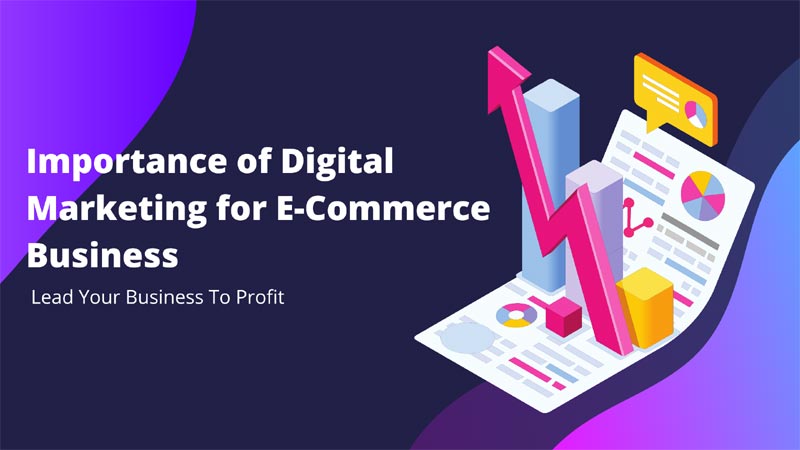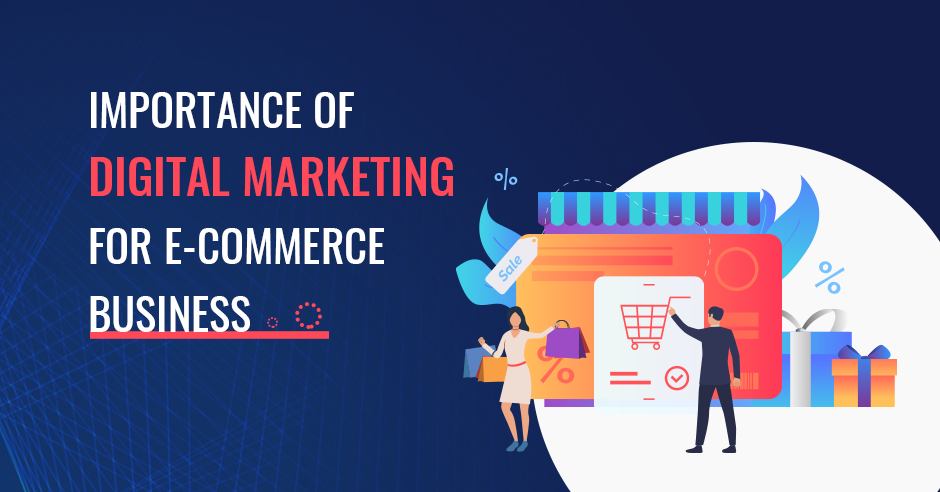E-commerce has revolutionized the world of marketing, providing businesses with new opportunities to reach a wider audience and increase their revenue. In this blog post, we will discuss the importance of e-commerce in e-marketing and how it has transformed the way businesses operate online.
1. Global Reach
One of the key advantages of e-commerce in e-marketing is its ability to provide businesses with a global reach. Unlike traditional brick-and-mortar stores, e-commerce allows companies to sell their products or services to customers worldwide. This expanded reach opens up endless possibilities for growth and expansion, helping businesses to tap into new markets and demographics.
2. Increased Sales and Revenue
E-commerce has proven to be a highly effective sales channel, driving increased revenue for businesses. With online shopping becoming more popular, customers now have the convenience of purchasing products and services from the comfort of their own homes. By providing this convenience, businesses can boost their sales and increase their overall revenue.
3. Cost-Effective Marketing
Compared to traditional marketing methods, e-commerce offers more cost-effective solutions for businesses. Advertising through social media, email marketing, and search engine optimization (SEO) are just a few examples of affordable strategies that can be employed in e-marketing. By utilizing these channels, businesses can effectively promote their products or services to a wider audience without breaking the bank.
4. Targeted Advertising
E-commerce allows for highly targeted advertising, enabling businesses to focus their marketing efforts on specific customer segments. Through data analysis and tracking, businesses can gain insights into customer behavior and preferences, allowing them to tailor their advertising campaigns accordingly. By delivering personalized messages to the right audience, businesses can significantly increase their conversion rates and drive more sales.
5. 24/7 Accessibility
Another significant advantage of e-commerce is its ability to provide businesses with 24/7 accessibility. Unlike physical stores, online businesses are not bound by time constraints. Customers can browse and make purchases at any time of the day, from any location. This constant accessibility allows businesses to cater to the needs of their customers around the clock, enhancing customer satisfaction and loyalty.

Credit: digitalcatalyst.in
6. Customer Insights and Analytics
E-commerce provides businesses with valuable insights and analytics, helping them to understand their customers better. By analyzing website traffic, customer interactions, and purchase patterns, businesses can gain a deeper understanding of their target audience. These insights can be used to optimize marketing strategies, improve product offerings, and enhance overall customer experience.
7. Improved Customer Experience
E-commerce platforms enable businesses to provide an enhanced customer experience. With user-friendly interfaces, convenient navigation, and secure payment options, businesses can ensure a seamless and enjoyable shopping experience for their customers. By prioritizing customer satisfaction, businesses can build trust and loyalty, leading to repeat business and positive word-of-mouth.
8. Flexibility and Scalability
E-commerce offers businesses the flexibility and scalability to adapt to changing market demands. Online stores can easily update their product offerings, change pricing, and implement marketing strategies in real-time. Additionally, e-commerce platforms allow businesses to scale their operations, accommodating growth without major infrastructure investments.
9. Compete with Larger Competitors
E-commerce levels the playing field, enabling smaller businesses to compete with larger competitors. With a well-designed website and an effective e-marketing strategy, smaller businesses can establish their presence, differentiate themselves, and attract customers without the need for expansive physical retail spaces.

Credit: www.builderfly.com
10. Relationship Building
E-commerce provides ample opportunities for businesses to build strong relationships with their customers. Through personalized email marketing campaigns, loyalty programs, and excellent customer service, businesses can foster trust and loyalty. These relationships further contribute to customer retention and long-term success.
Frequently Asked Questions Of What Is The Importance Of E Commerce In E Marketing
What Are The Benefits Of E-commerce For Marketers?
E-commerce provides a global reach, cost-effective marketing, customer insights, and increased sales opportunities for digital marketers.
How Does E-commerce Impact Customer Experience?
E-commerce enhances customer experience by offering convenience, personalization, 24/7 accessibility, and secure transactions, leading to heightened satisfaction.
What Role Does E-commerce Play In Digital Marketing Strategy?
E-commerce forms an integral part of digital marketing strategies by enabling direct sales, customer engagement, data-driven decision making, and targeted promotional efforts.
How Does E-commerce Contribute To Brand Visibility And Awareness?
E-commerce amplifies brand visibility and awareness through SEO optimization, social media integration, influencer marketing, and customer reviews and ratings.
Conclusion
In conclusion, e-commerce plays a crucial role in e-marketing by providing businesses with opportunities for global reach, increased sales, cost-effective marketing, targeted advertising, 24/7 accessibility, customer insights, improved customer experience, flexibility, competitiveness, and relationship building. With its numerous advantages, e-commerce has become an essential component for businesses aiming to thrive in the digital marketplace.

